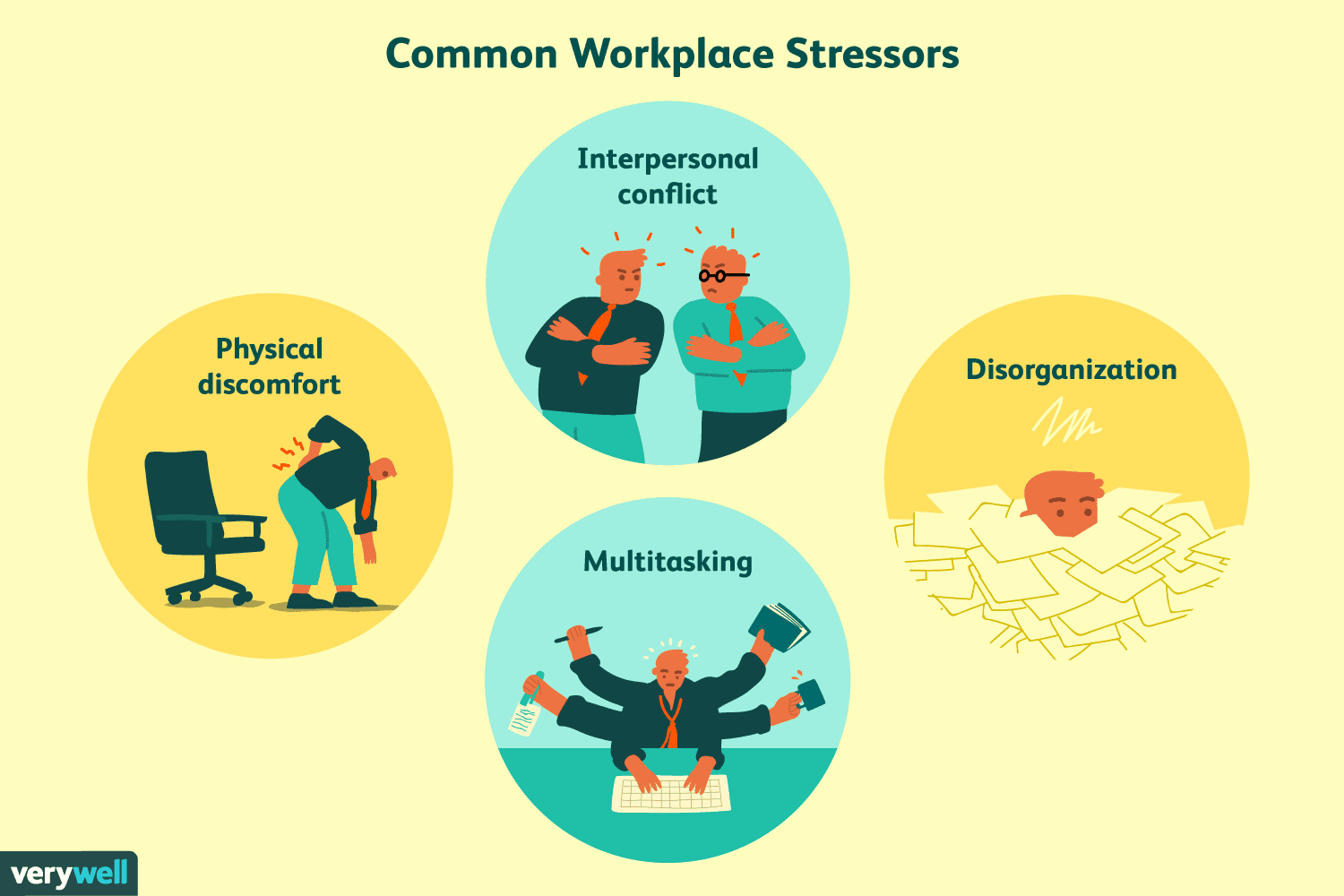Unless your job involves playing with puppies and eating ice cream all day while being massaged and told how great you are, you’ve probably experienced some level of stress at work. Technically, even the puppy-ice cream-massage job could get stressful at times, thanks to incessant barking and peeing, and brain freeze.
Anyway, as much as it’d be great to just leave your stress at the office, sometimes you can’t help but let it spill over into your home life. While that’s normal, you also don’t want to be that person who complains about work so much that it stresses other people out. A recent article in the Harvard Business Review provided a few ways to make sure your work stress isn’t contagious, including creating “pockets of sanity” and not just telling people how much you’re stressed, but also sharing ways you’re working to manage it.
To find out more about how to put these strategies into practice — and keep work stress under control as much as possible — we spoke to a few experts who shared some tips.
Creating pockets of sanity
Sometimes we have to make our own opportunities—and that goes for taking breaks, too. Some examples include engaging in self-care moments such honoring short breaks of 10 minutes a few times a day to shift from the stress and take actions such as as drinking water, having a snack, stepping outside for fresh air, washing hands or taking a quick brisk walk around, Mayra Mendez, Ph.D., a licensed psychotherapist and program coordinator for intellectual and developmental disabilities and mental health services at Providence Saint John’s Child and Family Development Center in Santa Monica, California tells Lifehacker. Bed Bath
Other options include engaging life outside the stressful experience—in this case, work— even if for just a minute or two, by reflecting on a positive memory, reviewing past successes, contemplating an event that you are looking forward to, reminding yourself of the positive outcomes anticipated from the projector considering seeking the help or support to make the task more manageable and enjoyable, she adds. Moving forward, you’ll want to make an effort to build relaxation periods into your daily life to support stress management. Walgreens Passport Photo Coupon Code
Don’t just talk about being stressed—share how you’re managing it
When you’re dealing with work projects that result in unavoidable high stress, it is important to consider management strategies to cope with the situation and get through it, Mendez says. A good place to start is with time management. Be realistic about how long something is going to take you to finish, and develop a plan for engaging the project or work task strategically, she recommends. Once you have a plan, prioritize and follow it. Periodically reassess it as project progresses and adjust the timetable accordingly. Bh Cosmetics
Another management strategy involves organization. No, not buying pretty multicolored file folders, sticky notes and highlighters and saying you’re going to get organized; Mendez is talking about figuring out how to break your task down into doable and productive components. Even if it’s just a short project, she says that it helps to be organized regardless of the turnaround time for the work task. “Schedules work beautifully in that they naturally provide a sense of order and timing to the situation or project,” Mendez explains. And, of course, don’t forget to schedule in pockets of sanity. Kohls
Stop catastrophizing
If there was an award for catastrophizing, I’d probably win it. But I’d probably get in an accident on the way to the ceremony or make an offhand remark that offends the awards committee so much that they hate me and revoke the award, and then I’d never work in this—or any—town again. As I know too well, it’s really easy for some initial stress to spiral out of control until it becomes all-encompassing and you assume the worst. lowes coupon generator
According to Adam L. Fried, Ph.D., a clinical psychologist practicing in Phoenix and assistant professor of psychology at Midwestern University, catastrophizing about work stress tends to come from worrying that things are going to go so wrong that we won’t be able to effectively handle what’s going to happen. For example, if you’re having difficulty falling asleep at night, you might think: “If I’m tired, I won’t be able to concentrate tomorrow and if I’m not able to concentrate then I won’t be able to get my work done and if I’m not able to get my work done, then my boss will be mad at me…” and we can continue along this negative train of thought until we become worried, frustrated or angry. neiman marcuss, Costco
When we don’t evaluate or dispute these negative thoughts, we may believe they’re inevitable and unchangeable, Fried says. Instead, trying to stop this thought process and center your attention. If you’re into mindfulness, you may want to try to concentrate on something in the present, such as your breathing, he adds. By doing this, you can attempt to dispute some of these thoughts and change the narrative of this thought train to be more positive.
If this means giving yourself a mild pep talk, so be it. For example, Fried suggests telling yourself things like: “Whatever happens, I’ll be able to handle it” or “Even if I’m a little tired, I’ll still be able to get through the day” or “I’m not even sure if I will be tired tomorrow but if I am, I know a few ways I can handle it.”


